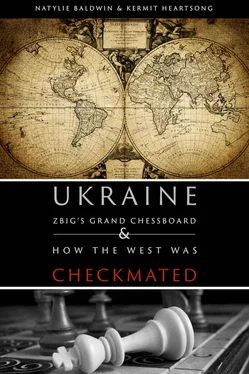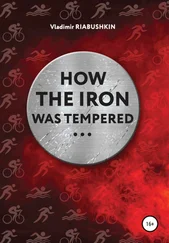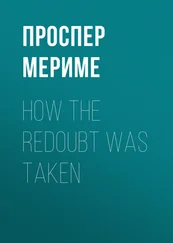Kermit Heartsong - Ukraine - ZBIG's Grand Chess Board & How The West Was Checkmated
Здесь есть возможность читать онлайн «Kermit Heartsong - Ukraine - ZBIG's Grand Chess Board & How The West Was Checkmated» весь текст электронной книги совершенно бесплатно (целиком полную версию без сокращений). В некоторых случаях можно слушать аудио, скачать через торрент в формате fb2 и присутствует краткое содержание. Год выпуска: 2015, Жанр: Политика, на английском языке. Описание произведения, (предисловие) а так же отзывы посетителей доступны на портале библиотеки ЛибКат.
- Название:Ukraine: ZBIG's Grand Chess Board & How The West Was Checkmated
- Автор:
- Жанр:
- Год:2015
- ISBN:нет данных
- Рейтинг книги:4 / 5. Голосов: 1
-
Избранное:Добавить в избранное
- Отзывы:
-
Ваша оценка:
- 80
- 1
- 2
- 3
- 4
- 5
Ukraine: ZBIG's Grand Chess Board & How The West Was Checkmated: краткое содержание, описание и аннотация
Предлагаем к чтению аннотацию, описание, краткое содержание или предисловие (зависит от того, что написал сам автор книги «Ukraine: ZBIG's Grand Chess Board & How The West Was Checkmated»). Если вы не нашли необходимую информацию о книге — напишите в комментариях, мы постараемся отыскать её.
Ukraine: ZBIG's Grand Chess Board & How The West Was Checkmated — читать онлайн бесплатно полную книгу (весь текст) целиком
Ниже представлен текст книги, разбитый по страницам. Система сохранения места последней прочитанной страницы, позволяет с удобством читать онлайн бесплатно книгу «Ukraine: ZBIG's Grand Chess Board & How The West Was Checkmated», без необходимости каждый раз заново искать на чём Вы остановились. Поставьте закладку, и сможете в любой момент перейти на страницу, на которой закончили чтение.
Интервал:
Закладка:
And Syria, again with a name change here and there and a few of the reasons for the US intervention recycled from the previous heroic mission:
In Syria, propaganda about alleged crimes by President Bashar Assad have been used to justify western support for an ugly civil war. Syria had been one of the more prosperous and peaceful countries of the region, but the US and its allies continue to funnel money to armed terrorists. A war that would have ended in a few months has dragged on for four years, with nearly 150,000 dead, and millions forced to become refugees. (Maupin 2014)
And in the Ukraine, where the various justifications for freedom, democracy, and EU candidacy have again been recycled, a new candidate for the Hitler Award is developed by specious claims and outright propaganda.
When Edward Herman, Professor Emeritus of MIT and expert on mass media and propaganda, was asked about what was missing in the US mainstream media’s news coverage of Ukraine, his response was:
What is missing, first of all, is a minimum of objectivity. The media are functioning more than ever as a propaganda machine for the State Department. One thing missing — and being suppressed — is the important role of neo-Nazi elements both in the Kiev government and in the forces they have fielded in their war against East Ukraine. The media are eager to find Russians in Ukraine, but will not even recognize neo-fascists staring them in the face, but working on our side. (Falcone 2014)
Addressed below are a number of critical points regarding Western propaganda, which range from the Maidan revolt to the claims of Russian aggression to the Crimea “Invasion” to Malaysian flight MH17.
Peaceful Violence on The Maidan
The US-based Occupy Movement, by and large a peaceful movement, which objected to the growing disparity between the 1 percent and everyone else and the $22 trillion bailout of the “Banksters ” was violently crushed, via police raids, in the US. Its analogue in the UK, the 2010 anti-austerity and student protests, was also violently dealt with by the British authorities (Melendez 2013). However, had the violence of these protests risen to the level of the Maidan — fire-bombing buildings and policemen, relentlessly attacking the security forces with Molotov cocktails, dangerous homemade implements and guns, and destroying national monuments — the Western response would have been the overwhelming use of deadly force (consider the West Philadelphia Bombing, Waco, Ferguson).
Michael Hudson (2014), distinguished research professor of economics at the University of Missouri — Kansas City, describes how the US treated its peaceful protestors:
Remember how brutally US dispersed the Occupy Movement and destroyed their camps in many US cities? Remember that policeman who was going in circles calmly spraying with a very powerful pepper spray the defenceless, sitting on the ground, students in California? All those students could do was to cover their faces and try to protect their lungs and eyes from damage. (Hudson 2014)
Yet, the West demanded that President Yanukovych deal peacefully with the violent and armed protestors on the Maidan (Meyssan 2014). Other violent actions of the Maidan groups known to be associated with neo-Nazi organizations (Trident, White Hammer, Right Sector, etc.) included the violent seizure and setting ablaze of homes, the injuring of nearly 200 security officers, and numerous human rights violations. Yet, Yanukovych was threatened with violent retaliatory action, “all cards on the table,” should he seek to utilize Western methods for dealing with armed and violent protestors.
President Yanukovych’s reply is described below by Michael Hudson (2014), and can be viewed via raw videos posted to YouTube:
Berkut [Ukrainian Police] was given a new order not to respond, but just stand there — per reports — WITHOUT DEFENDING THEMSELVES, while their eyes were being poked at with metal spears, while they were burned with Molotov cocktails, taken hostage, and shot. (Note, I am not the biggest fan of police in any country, but the truth is glaring.) This order was given to them by Ukrainian President Yanukovych in response to the threat of sanctions by the EU and US if Yanukovych tried to restore order in the country he was supposed to govern. (Hudson 2014)
The violence by the protestors continued as buildings were seized and looted. Several of the buildings destroyed by the peaceful Maidan protestors were the Kiev, Lviv, Ternopil and Rivne City-State Administration Buildings, the Lviv Interior Ministry and four Central District Police Departments (looted of nearly 1,300 firearms). The Ministry of Internal Affairs, the Ministry of Health, the Central House of Officers, the House of Trade Unions, and the Lviv home of Party Regions deputy, A. Herman were all set ablaze.
Numerous human rights abuses took place in the Party of Regions building that was taken over by Right Sektor militants of the Maidan. As mentioned previously, two men were brutally murdered in the Party of Regions building.
Other quite horrific acts of the Maidan militants were the public torture of the governor of the Volyn Regional State Administration, A. Bashkalenko; the firing at tour buses, and a particularly brutal event against Anti-Maidan protestors:
Near the town of Korsun-Shevchenkovsky (Cherkassy region), several buses with passengers, who were returning to Crimea from protests against European integration at St. Michael’s Square in Kiev, were fired upon and stopped at the barricades, where the flags of the UPA, the Udar (Strike) party, and AUU Svoboda were flying. The people, both men and women, were dragged out of the buses through a corridor of militants who beat them with bats and entrenching shovels. Then the passengers were knocked down in a heap on the roadside, doused with gasoline, and threatened to be set on fire. According to witnesses, militants from the crowd shouted: “Just wait, we’re going to come and get you in Crimea. We are going to stab you and shoot you, that is, those of you who we haven’t already beaten to a pulp and shot up yet.” After that, many Crimeans were forced to take off their shoes for the needs of Maidan soldiers, and they were driven around the buses like cattle and forced to pick up the broken glass. The humiliation and abuse continued for several hours. There were casualties among the victims. Most of the buses were burned. (Voltaire 2014)
Another severe human rights violation undertaken by the Right Sektor militants of the Maidan, deemed freedom fighters by the West, was the torture of the first secretary of Lviv’s Communist Party, R. Vasilko. According to the Voltaire White Paper:
Euromaidan supporters detained, illegally sentenced and tortured the first secretary of the city committee of the Communist Party of Lviv R. Vasilko. According to eyewitnesses, he had needles pushed under fingernails, his right lung pierced, three ribs, nose, and facial bones broken. The rioters also threatened to destroy his family. After the severe torture, R. Vasilko was taken to hospital, where the threats continued. Eventually, Vasilko had to flee Ukraine with the help of his relatives. (Voltaire 2014)
Yet, the West turned a blind eye to these extremely violent acts and the various human rights abuses of the Maidan militias, while repeatedly saluting their actions and referring to them as “freedom fighters.”
However, the most violent acts perpetrated, which now appear to also be linked to the Maidan militia, were the sniper attacks that took place in late February of 2014.
The Maidan Snipers
On Thursday, February 20, 2014, the demonstration in Kiev’s Maidan Square would become dramatically more violent. The violence resulted in the combined deaths of nearly 100 protestors and police officers and death threats against President Yanukovych, who would soon flee the country for fear of his life.
Читать дальшеИнтервал:
Закладка:
Похожие книги на «Ukraine: ZBIG's Grand Chess Board & How The West Was Checkmated»
Представляем Вашему вниманию похожие книги на «Ukraine: ZBIG's Grand Chess Board & How The West Was Checkmated» списком для выбора. Мы отобрали схожую по названию и смыслу литературу в надежде предоставить читателям больше вариантов отыскать новые, интересные, ещё непрочитанные произведения.
Обсуждение, отзывы о книге «Ukraine: ZBIG's Grand Chess Board & How The West Was Checkmated» и просто собственные мнения читателей. Оставьте ваши комментарии, напишите, что Вы думаете о произведении, его смысле или главных героях. Укажите что конкретно понравилось, а что нет, и почему Вы так считаете.











